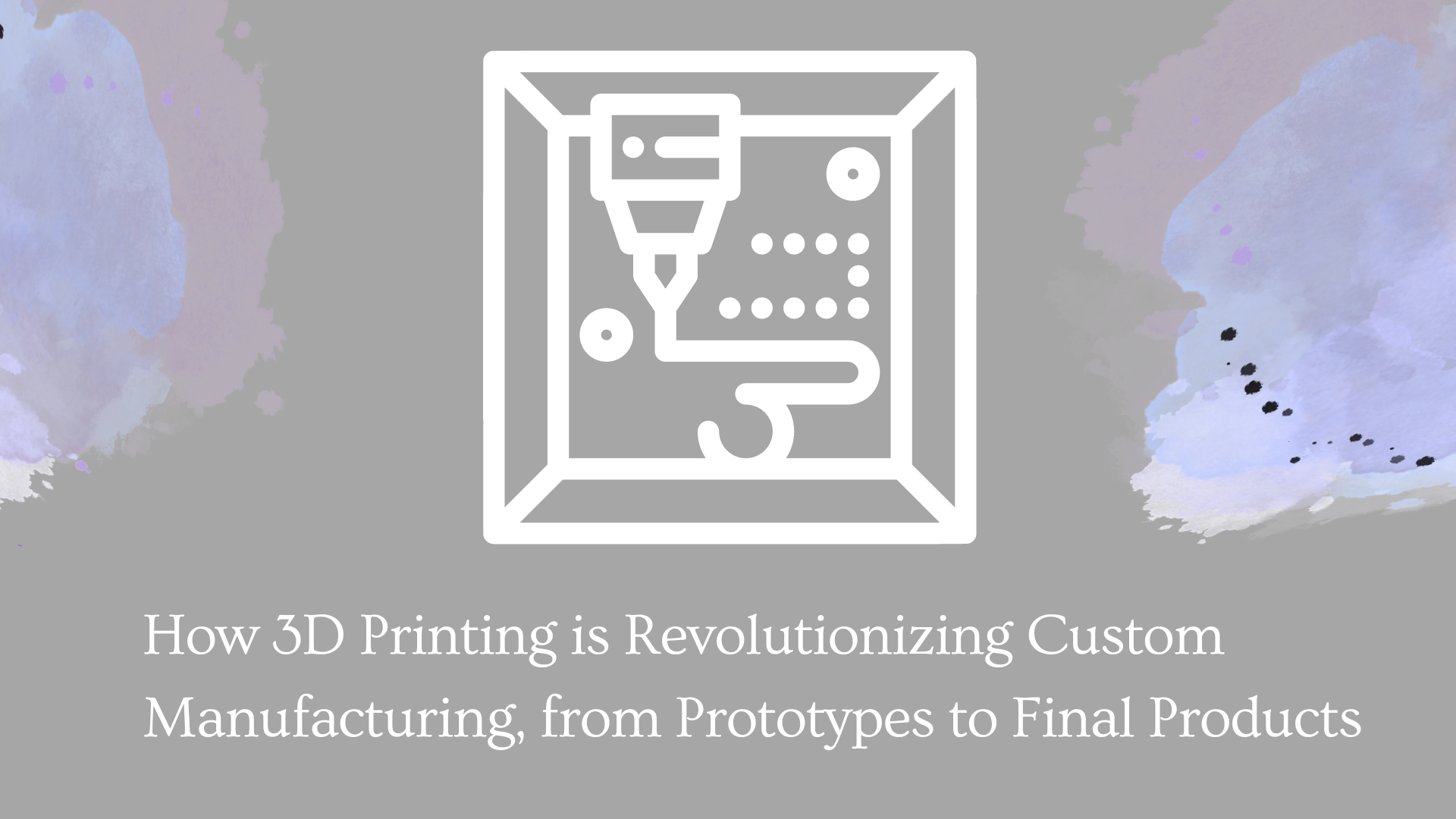In the realm of manufacturing, innovation knows no bounds, and 3D printing technology stands at the forefront of this revolution. From prototypes to finished products, the advancements in 3D printing have reshaped the landscape of custom manufacturing, offering unparalleled flexibility, precision, and efficiency. Let’s embark on a journey to explore the transformative impact of 3D printing technology on the manufacturing industry.
Unveiling the Power of Prototyping
Gone are the days of lengthy and expensive prototyping processes. 3D printing has revolutionized the way prototypes are created, enabling designers and engineers to swiftly bring their concepts to life. Unlike traditional methods, which often involve costly tooling and prolonged lead times, 3D printing allows for rapid iteration and customization. With the ability to print complex geometries and intricate details, designers can test and refine their designs with unprecedented speed and precision. This not only accelerates the product development cycle but also fosters innovation by encouraging experimentation and iteration.
Customization Redefined
One of the most significant impacts of 3D printing technology is its ability to facilitate mass customization. Traditional manufacturing methods often struggle to accommodate individualized preferences and unique specifications. However, 3D printing enables manufacturers to produce highly personalized products at scale, catering to the diverse needs and preferences of consumers. Whether it’s customized footwear, personalized medical implants, or bespoke consumer electronics, 3D printing empowers manufacturers to deliver tailored solutions with unmatched speed and accuracy. This not only enhances customer satisfaction but also opens up new avenues for product differentiation and market segmentation.
Streamlining Production Processes
Beyond prototyping and customization, 3D printing technology is revolutionizing the production of finished goods. With advancements in materials science and printing techniques, manufacturers can now produce end-use parts and components directly through additive manufacturing. This eliminates the need for costly tooling and reduces material waste, making production processes more sustainable and cost-effective. Moreover, 3D printing enables on-demand manufacturing, allowing companies to fulfill orders quickly and efficiently, thereby minimizing inventory costs and optimizing supply chain management. From aerospace components to automotive parts, 3D printing is transforming the way products are manufactured, offering unparalleled agility and flexibility in production.
Driving Innovation Across Industries
The impact of 3D printing technology extends far beyond traditional manufacturing sectors. Across industries such as healthcare, architecture, and fashion, 3D printing is driving innovation and pushing the boundaries of what’s possible. In healthcare, 3D printing is revolutionizing patient care by enabling the production of custom prosthetics, implants, and surgical guides tailored to individual patients’ anatomy. In architecture, architects and designers are harnessing the power of 3D printing to create intricate models, prototypes, and even full-scale structures with unprecedented speed and precision. In fashion, designers are pushing creative boundaries by leveraging 3D printing to produce avant-garde garments and accessories that defy traditional manufacturing constraints.
Embracing the Future of Manufacturing
As we stand on the brink of a new era in manufacturing, the possibilities presented by 3D printing technology are virtually limitless. From accelerating product development cycles to enabling mass customization and streamlining production processes, 3D printing is reshaping the way we design, create, and consume goods. As the technology continues to evolve and mature, we can expect to see even greater advancements in materials, printing techniques, and application areas. Ultimately, 3D printing holds the potential to democratize manufacturing, empowering individuals and businesses alike to unleash their creativity and innovation on a scale never before imagined.
In conclusion, the advancements in 3D printing technology are revolutionizing custom manufacturing in ways that were once unimaginable. From prototypes to finished products, 3D printing is unlocking new possibilities and transforming the way we conceive, design, and produce goods. As we embrace this technological revolution, we stand poised to usher in a new era of innovation, efficiency, and sustainability in manufacturing.









